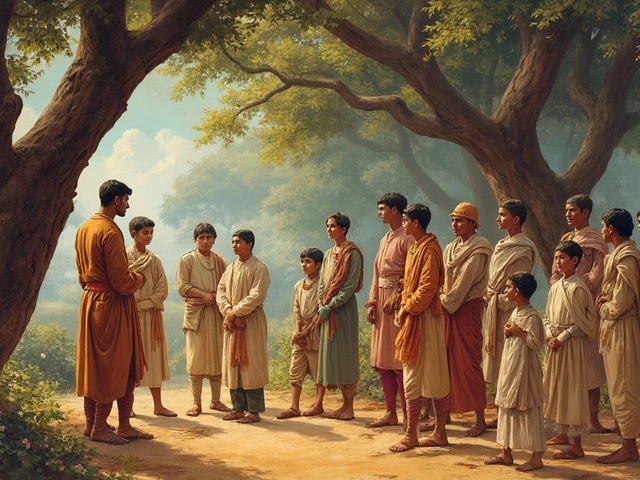You’re looking for the right word, not a vague compliment. The goal here is simple: find the best term for a person who never gives up, match it to your context (work, sport, study, community), and say it with the right tone. I’ll give you a fast shortlist, when to use each word, local phrases we use in Aotearoa New Zealand, and real examples you can copy-no fluff.
TL;DR
- Most common: persistent, determined, resilient, tenacious, gritty.
- Nuance matters: resilient = bounces back; tenacious = holds on; gritty = long-term effort; determined = decided; persistent = keeps at it.
- Use positive tone: persistent and resilient are safest in formal settings; gritty and tenacious feel punchier.
- NZ/Aotearoa: kia kaha (be strong), kia manawanui (be steadfast), and battler carry local flavour-use respectfully.
- Quick rule: If it’s about recovering from setbacks, say resilient. If it’s about sticking to a goal, say gritty. If it’s about not letting go, say tenacious.
The best words for someone who never gives up (and when to use them)
Different words fit different moments. Choosing well signals respect and precision. Here’s a plain-English breakdown with tone cues, plus a quick method to pick the right one.
Core five with simple, practical meanings
- Resilient: recovers and adapts after hardship or failure. Back on the horse, wiser than before. The American Psychological Association defines resilience as the process of adapting well in the face of adversity (APA).
- Gritty: stays on a long, hard path to a meaningful goal. Angela Duckworth’s research frames grit as passion + perseverance toward long-term goals (Duckworth).
- Tenacious: refuses to let go. Grips the problem. Dog-with-a-bone energy.
- Persistent: keeps going despite difficulty or delay. Steady, patient, dependable.
- Determined: made up their mind and acts decisively. Focused, locked in.
Helpful extras (use with care and context)
- Dogged: stubbornly persistent. Strong in sport or journalism; can sound blunt.
- Unflappable: calm under pressure. Doesn’t rattle, even when the weather turns.
- Stoic: endures pain or hardship without complaint. Solid, restrained vibe.
- Relentless: keeps pressing. Can be inspiring in sport; too harsh in caregiving.
- Indefatigable: never tired. Formal/old-fashioned. Fits awards, profiles.
- Unyielding: won’t bend. Good for principle; risky if flexibility is needed.
- Perseverant: continues despite obstacles. Correct but less common than perseverance/persistent.
- Battler (Aotearoa/NZ & Australia): ordinary person who faces tough odds and keeps going. Warm, working-class respect.
Te reo Māori phrases used in Aotearoa
- kia kaha: be strong. A short, powerful encouragement across many contexts.
- kia manawanui: be steadfast, patient, endure. Think steady heart and staying power.
- toa: champion, brave, warrior. Use with cultural care and relevance.
Use te reo Māori with respect. If you’re writing outside Māori communities, it’s fine to encourage with kia kaha or kia manawanui, especially in Aotearoa-based teams and community work.
How to choose the right word (fast)
- What’s the main story? Recovery after setbacks (resilient), long-haul goal (gritty), refusal to let go (tenacious), steady effort (persistent), firm decision and action (determined).
- What tone do you need? Formal/neutral (resilient, persistent). Punchy (gritty, tenacious). Hard-edged (relentless). Calm (unflappable, stoic).
- Who’s your audience? For CVs and award citations, prefer resilient/persistent/determined. For sport or startups, tenacious/gritty/relentless can land well.
- Any cultural/local flavour? In Aotearoa, kia kaha or kia manawanui can add heart and place.
- Check for unintended sting. Relentless can read aggressive in care roles; stubborn can sound inflexible unless you really mean it.
| Word | Plain meaning | Tone | Best for | Caution |
|---|---|---|---|---|
| Resilient | Bounces back, adapts | Positive, neutral | Health, education, community | Not about sheer grind |
| Gritty | Stays the course for years | Energetic, modern | Sport, startups, study | Can feel intense in care roles |
| Tenacious | Holds on firmly | Strong, vivid | Advocacy, legal, sales | Suggests inflexibility if misused |
| Persistent | Keeps going | Safe, steady | CVs, references, schools | Less dramatic |
| Determined | Decided and focused | Confident | Profiles, awards | Not about recovery |
| Dogged | Stubbornly persistent | Gritty, earthy | Sport, crisis reporting | Can read as obstinate |
| Unflappable | Stays calm | Cool-headed | Emergency, aviation | Not about long grind |
| Stoic | Endures without fuss | Composed | Military, outdoor | Can seem emotionally distant |
| Relentless | Never lets up | Hard-edged | Sport, sales targets | Harsh in people-care roles |
| Indefatigable | Never tired | Formal | Citations, history writing | Sounds old-fashioned |
| Unyielding | Won’t bend | Firm | Principle-based stances | Inflexible if overused |
| Battler | Faces odds, keeps going | Warm, local | Community stories (ANZ) | Colloquial/regional |
Citation notes for credibility
- Resilience: American Psychological Association defines it as adapting well after adversity-skills and behaviours you can build (APA Dictionary of Psychology).
- Grit: Angela Duckworth’s studies show grit predicts achievement beyond talent and IQ when goals are long-term (Duckworth, Grit, 2016; peer-reviewed articles, 2007-2019).
- Te reo Māori meanings: manawanui (steadfast, patient) and kia kaha (be strong) align with Te Aka Māori Dictionary usage.
All this is to help you pick the right word for your sentence, CV, award note, or pep talk-because one good word can do real work.

Examples, phrases, and sentences you can copy
Here are real-world lines you can use or tweak. I’ll keep them short and natural so they don’t read like a poster.
Short, solid compliments
- You’re incredibly resilient.
- Her grit carried the team across the line.
- He’s tenacious-he doesn’t let go of a tough problem.
- They stayed persistent when most people would’ve stopped.
- He’s a battler, no two ways about it.
CVs and references (safe tone)
- Demonstrates resilience under pressure and adapts quickly after setbacks.
- Shows sustained perseverance on long projects with changing requirements.
- Tenacious problem-solver who follows issues through to resolution.
- Consistently persistent; meets deadlines despite conflicting demands.
- Determined and calm, even in ambiguous situations.
Sport and coaching
- She’s gritty-keeps training when the weather turns ugly.
- Relentless on defence, disciplined on attack.
- He’s unflappable in the final minutes.
- Tenacious at the breakdown, tidy in the tackle.
- We bent, we didn’t break-kia kaha, e te whānau.
Community and charity work
- Our volunteers are resilient; they return, they learn, they keep showing up.
- He’s a battler who never gave up on finding stable housing.
- The team took a tenacious approach to outreach-street by street, name by name.
- We say kia manawanui as we keep walking with families under pressure.
- Determined to close the gap, they persisted with night classes and childcare.
Health and recovery
- She’s resilient-every setback became part of her plan.
- Stoic through treatment, warm with the people around her.
- He kept at rehab, step by step, day by day.
- Persistent progress, not sudden leaps.
- Unflappable when the plan changed-adapted without losing heart.
Advocacy and policy
- Tenacious on tenants’ rights; he stayed with the case for two years.
- Relentless with data, compassionate in stories.
- Determined to shift the dial, and patient with the process.
- Resilient coalition: new partners, same mission.
- Dogged reporting kept the issue alive.
Phrases that feel natural (not cheesy)
- kept showing up
- stuck with it
- didn’t quit when it hurt
- found a way
- came back stronger
Pitfalls to avoid
- Don’t call someone stubborn unless you mean it-stubborn can be flattering in sport but harsh in team settings.
- Avoid relentless for care roles unless you pair it with empathy; relentless alone can sound cold.
- Indefatigable is fine in a formal write-up, but heavy in a casual thank-you.
- Grit isn’t about short sprints-use it for multi-month or multi-year effort.
- Resilient isn’t code for “put up with anything.” Pair it with support, not just pressure.
Local colour from Wellington
- Windy day, still training-gritty.
- Power cuts, project shipped-persistent.
- Quake drills, calm faces-unflappable.
- Funding fell through, team regrouped-resilient.
Use the word that proves you see the person. Keep it human and specific to their story.

Quick chooser: checklist, decision tree, and mini‑FAQ
One-minute checklist
- Is the core story bounce-back? Choose resilient.
- Is it long-haul commitment? Choose gritty.
- Is it refusal to let go? Choose tenacious.
- Is it steady effort? Choose persistent.
- Is it a firm decision and follow‑through? Choose determined.
- Need calm under fire? Choose unflappable or stoic.
- Want local Aotearoa flavour? Say kia kaha or kia manawanui.
Decision tree (text version)
- What happened most? Setbacks you overcame → say resilient.
- If it took months/years toward one goal → add gritty.
- Was the person gripping a tough issue until it was solved? → tenacious or dogged (if you want a raw edge).
- Do you need safe, formal language? → persistent or determined.
- Is calm under pressure the standout? → unflappable, possibly stoic.
- Are you writing for sport or sales and want heat? → relentless (pair with a positive context).
Cheat lines you can adapt
- A resilient person doesn’t bounce back to the old normal-they build a better one.
- Grit shows up when talent gets bored.
- Tenacity is holding on; perseverance is moving forward.
- Determination sets the direction; persistence puts in the miles.
Mini‑FAQ
- Is stubborn the same as persistent? No. Persistent is positive: consistent effort. Stubborn is neutral-to-negative: unwilling to change even when evidence says you should. If flexibility matters, avoid stubborn.
- Resilience vs grit-what’s the difference? Resilience is how you adapt after setbacks (bounce-back). Grit is how you stay with a long-term goal (stick-with-it). You can be gritty without a recent setback; you can be resilient even if the goal changes.
- Is relentless positive? Depends on context. In sport or sales, it can be praise. In healthcare or education, balance it with empathy (e.g., relentless in support).
- Best term for kids/teens? Persistent and resilient are safe. Grit can motivate if you also model rest and support. Schools in NZ often teach resilience alongside wellbeing-keep it balanced.
- What’s a noun for “a person who never gives up”? Common: a fighter, a battler (ANZ), a go‑getter, a trooper. Less common: a perseverer. Use what fits your audience.
- UK vs US differences? Grit is widely used in both now. Persistent, determined, resilient are universal. Dogged is more common in UK writing.
- Any words to avoid? Avoid martyr or workaholic as praise. They celebrate harm. Praise sustainable effort, not self‑damage.
Pro tips
- Pair the word with a concrete example. Say why you chose it: "She’s resilient-after failing the first exam, she mapped a new plan and passed."
- Match intensity to the moment. Awards can carry big words; everyday feedback lands better when it’s simple.
- Don’t label people resilient to excuse lack of support. Name the effort and commit to resources.
- If you use Māori phrases, learn the pronunciation and meaning. Kia kaha is more than a tagline-it carries care and solidarity.
Next steps by scenario
- Student writing an essay: Define the term in your intro (one sentence), pick two examples, and close by showing what helped the person persist (support, strategy). Use resilient if the story centres on setbacks; gritty if it’s a long build.
- Hiring manager: In your job ad, describe behaviours: persistent follow‑up, tenacious problem‑solving, resilient after change. Add supports (mentoring, reasonable workload) so you’re not glorifying burnout.
- Coach or team lead: Choose one theme per season. Example: grit for a marathon build, resilience for a post‑loss bounce. Tie it to habits (sleep, review, next rep).
- Community organiser: Use battler in ANZ contexts if it fits the person’s voice; otherwise stick with resilient/persistent. Pair praise with a pathway: what’s the next step you can resource for them?
- Grant writer: Use resilient for communities, tenacious for advocates, persistent for volunteers. Add proof (number of sessions, months sustained) so the word carries weight.
Troubleshooting
- My sentence sounds stiff: Swap the fancy word for a plain one and add an action. Example: Instead of “He is indefatigable,” try “He kept turning up, even in the rain.”
- Worried a word might offend: Choose resilient or persistent. They’re safe almost anywhere.
- Need something short for a headline: Resilient or Tenacious. One word, big meaning.
- Writing outside Aotearoa: If you’re unsure about local terms like battler or kia kaha, go with resilient/determined and a clear example.
Call the person by the word that matches how they moved through the world-and back it with a specific moment. That’s how language lifts people without turning them into slogans.






